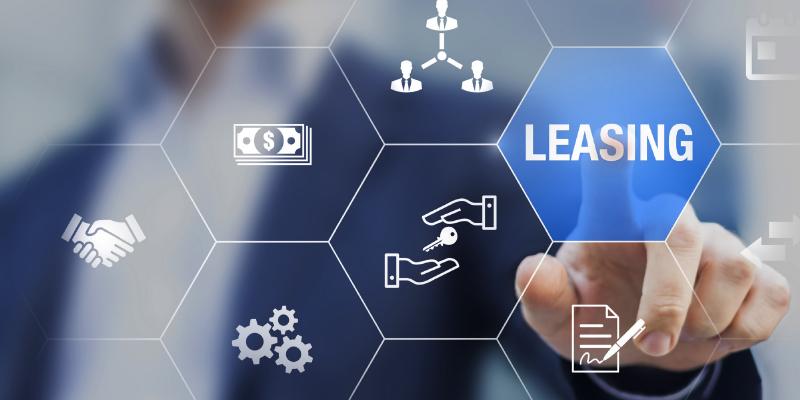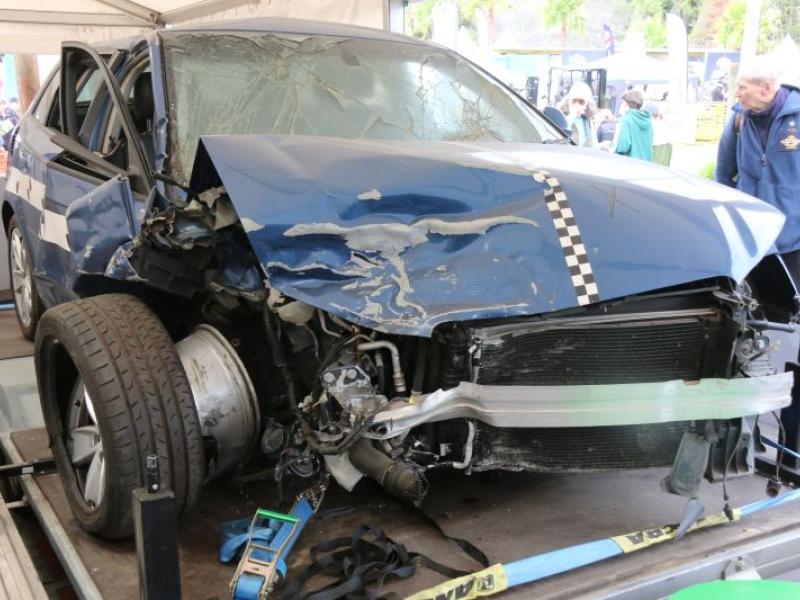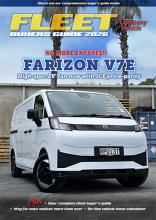Fleet manager/buyer; out the front, standing tall please. Thank you, no, I’m kidding, relax, you’re not in trouble, unless of course, you’re not doing what you’re supposed to be doing.
But what is it you ARE you supposed to be doing? Managing the fleet, right? That’s what it says in your job description.
Yes, of course, you have all the other things in your job description; stocking the warehouse, doing the accounts receivable, helping set up the rosters, organising the trade show, answering the phones, handling the PR and the marketing campaigns and above all, making sure there’s toilet paper in the ladies room, but you REALLY need to pay attention to sorting out these vehicles...
Sound familiar? If you are a ‘fleet manager’ for a small to medium business enterprise, your job description might be similar to the above, or like an abridged version of Tolstoy’s War
and
Peace.
If you are new to the wonderful world of fleet management, it’s a safe bet that you don’t know what you don’t know, and if you do know a little bit about it, well, that’s probably enough to make you dangerous... a little knowledge being a dangerous thing.
Currently, buyers in the new car market are showing a little less enthusiasm than they have for the past few months.
This could be driven by many factors, but when it comes to vehicle purchasing for the business, there would appear to be a reluctance to tie up capital expenditure into a known depreciating asset such as a vehicle fleet.
There was a time when leasing vehicles was a minefield which many were led into blindfolded, ended up being stuck in the middle of it and being told to find their own way out when the global financial crisis hit.
Not surprisingly, there was a degree of reluctance on the part of potential lessees to engage with leasing companies after that.
However, times have changed and today’s leasing companies, those which survived the economic meltdowns we saw in the mid 2000’s, have taken a very different tack when it comes to how they operate and the services they provide.
As to the other side of the fence, potential lessee’s are gently warming to the fact that the lease companies which have survived, might actually be able to do the right thing by them, and in this, they are not wrong.
It is, according to the lease companies NZ
Company
Vehicle has spoken to, all about the forming of a trusted partnership. Lease companies who failed to recognise this, have failed in the past.
Those which have embraced the concept are reaping the rewards of adding new business to their portfolios – new business with a new breed of fleet manager.
That new breed of fleet manager is the fleet manager whose role is often secondary to that for which they were hired.
While it’s fair to say a fleet manager has to have a handle on modern fit-for-purpose vehicles, he/she also has a raft of other responsibilities which are not so clear cut, nor as easy to come to terms with, but that’s OK, because the lease companies are there to fill in the gaps.
Talking to ORIX Leasing & Finance NZ for example, NZ
Company
Vehicle learned the business of providing vehicles to its clients is a core element of the company’s operations, but is in fact, just a part of what a leasing company of today actually does and the services it provides.
“The vehicles are only a small part of what we do,” says Joe Kingstone, Account Manager for ORIX NZ. “There is no question that fleet management is such an astonishingly broad subject encompassing elements which were not required eight to ten years ago. These days we can provide emissions reporting, vehicle tracking, even organise the RUC management, all dependant on what the business needs.”
“Risk mitigation, health and safety are major considerations for some businesses these days. They require a lot of extra assistance and reporting which can be time consuming and complicated. As a leasing provider we establish a partnership with those clients that’s built on trust – it’s the critical element between a lease company and a client.”
Having said that, there are lease customers who believe assistance with vehicle selection is all the leasing assistance they require and, as a trusted partner, ORIX NZ recognises that, in addition to any other aspect of the leasing package which might be required.
“There was a time when the main reason clients would use leasing companies was to free up capital and secure vehicles with more significant discounts than could be expected from more direct channels.” says Lee Mudford, a long-serving senior Account Manager at ORIX NZ.
“Today, this is still a consideration, with a large sized fleet often receiving a good level of discount, which might suggest SME’s are disadvantaged up against the larger corporates, but this is not the case.” ORIX are purchasing at such bulk levels across all our clients that we can then pass those discounts onto the smaller fleets who when standing alone wouldn’t be able to pull that bulk purchasing power. So there are still very tangible advantages to leasing at all levels in that regard.”
Then there is also the consideration that leasing companies have a wealth of expertise when it comes to fit-for-purpose vehicle selection.
But what about current vehicle safety ratings and understanding the more sophisticated systems which determine those ratings; LKAS, FCW, DSBS, or CO2 emissions, fuel economy, calculation of residual values and the new technologies like electric vehicles?
Your lease company account manager can be expected to know the importance of all of these areas and more besides. In fact, they are expected to know everything there is to know about how to make your fleet work most efficiently for your business.
“Many fleets are managed as an employee’s secondary role,” says Joe Kingstone, “In this case, the daily fleet ‘manager’ as it were for the business may not necessarily have a lot of knowledge on vehicles or in some cases finance either. So they often need a lot more guidance and advice on what their options are and what is best fit for purpose. In other fleets the fleet manager is a well-established role and there is usually a better understanding on the financial side of things. But with those there are also usually a lot more reporting and analytics required by the greater business as the fleet is often a key factor in their daily operations.”
As times have changed, leasing companies have had to adapt and become experts in all manner of industries and specialised fields.
These might include Health and safety compliance, finance, taxation, vehicle fit-out and the legal requirements for the same, accident management, transport legislation and of course, the latest and greatest developments in electric or conventionally fuelled vehicles, to offer bespoke solutions from cradle to grave, with all the reporting data a fleet manager of today requires.
Clearly, there is no one-solution-for-all when a business enters a partnership with a lease company, suggests ORIX NZ’s Lee Mudford, “but the lease company must be flexible to the business’ needs. You don’t stay in this business for 30 years without it. You have to be flexible, reliable and continue to ad value to our the partnership. That’s why we're still here and why we will continue to find innovative ways to solve our client’s transportation problems.”
Nor is this one lease provider’s opinion. SGFleet shares much of the same thinking.
“We’d like to think that our customers consider us as partners,” says SGFleet MD Geoff Tipene. “We offer a very high quality, personalised service. When we’ve been working with customers for a number of years, they come to rely on us and think of our team as an extension of their own, rather than just a service provider or resource.”
“Our industry has changed over the past ten years and customers expect more than just a ‘fleet administrator’ that provides vehicles and handles their WOF’s, RUC’s and maintenance.
Geoff continues; “advances in technology played a big part in this, so customers have higher expectations of the service we provide and want the additional value-added products that we can offer whether it be through carpool technology, telematics or driver apps.”
Nor is SGFleet ignorant in the latest buzz – electric vehicles. SGfleet has worked with industry bodies, suppliers and manufacturers to understand what is required to help customers prepare for the addition of ZEVs or hybrids to their current fleets in order to reduce operating costs, lower CO2 emissions and meet other environmental goals.
In exploring options for its own fleet across the nationwide network of offices, SGFleet understands the complex and often unique requirements of each individual charging and parking site.
SGFleet’s eStart ZEV Transition Plan offers an end-to-end planning solution that includes assessment of a company’s goals, vehicle-by-vehicle review, site inspections, infrastructure upgrades and installation of charging points to help effectively plan and manage budget expectations.
There has been interest already in the compliance and safety products SGFleet has to offer, especially with the work which is being done by the Ministry of Transport on the new road safety strategy to replace the Safer Journeys strategy which ends next year.
“Taking advantage of analytics and reporting via our Fleetintelligence portal gives us a consultative edge which has been a significant shift over the past decade. This gives our customers a full view over their operations and offers powerful reporting as to how to better utilise and optimise their entire fleet.”
SGFleet’s experience with new SME business shows how much more aware customers are when it comes to adopting a workplace health and safety approach when it comes to their fleets. This is expected to increase, as there will definitely be reviews in the future around vehicles as workplaces.
“Our Inspect365 online vehicle inspection production for both heavy and light commercial vehicles can provide peace of mind for many companies in this area,” says Geoff.
Geoff adds that purchasing and maintaining your own fleet is one of the largest expenses for a company and many customers opt to hold onto capital and resources for other business use.
“Traditionally, a slowing economy increases the activity in the vehicle leasing industry,” says Geoff. “During times of uncertainty, more businesses choose to lease vehicles.”
“The good thing is” he says, “that when the economy rebounds, those customers will have experienced the benefits of leasing and are unlikely to return to purchasing their own fleets.”v






